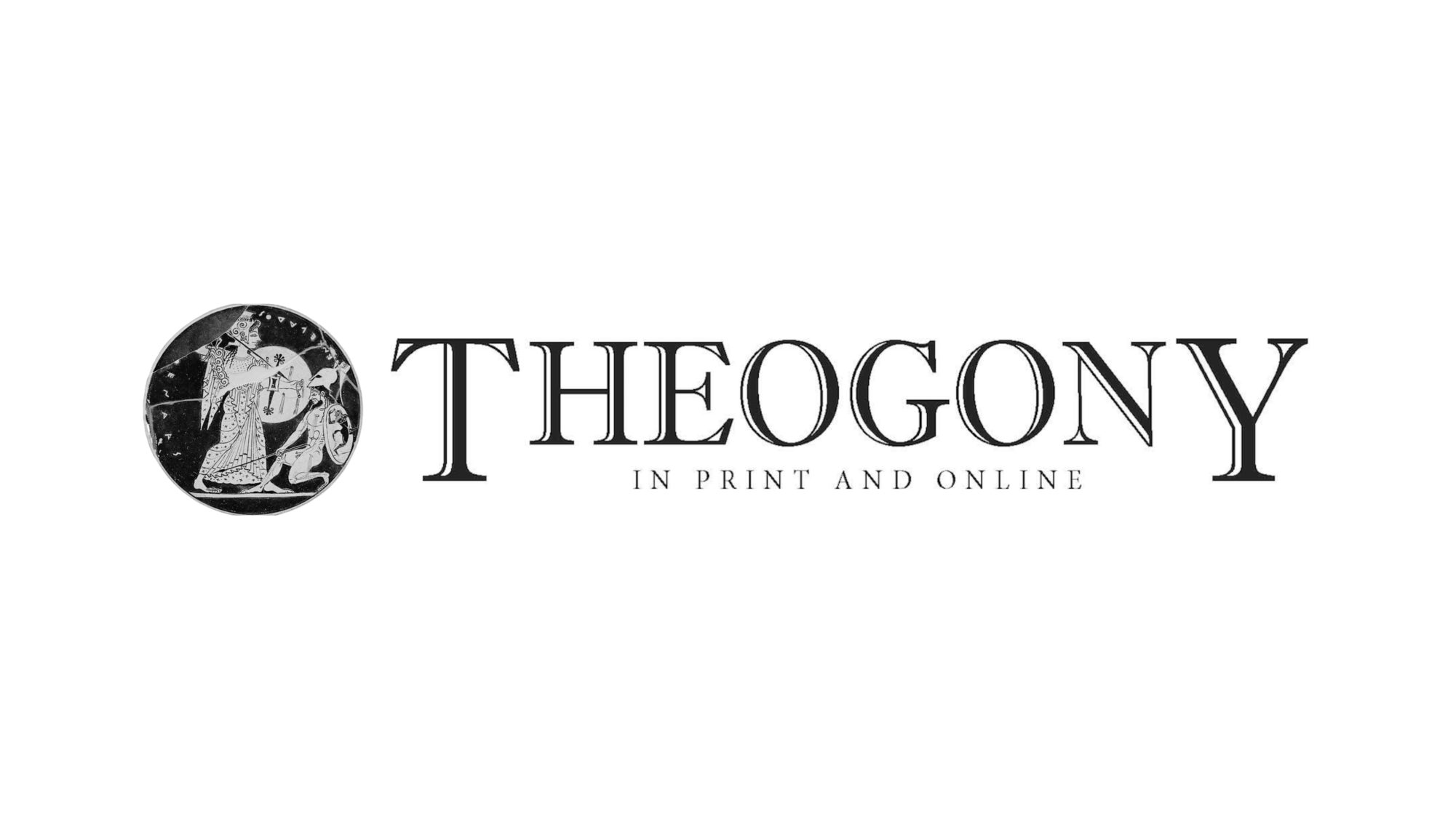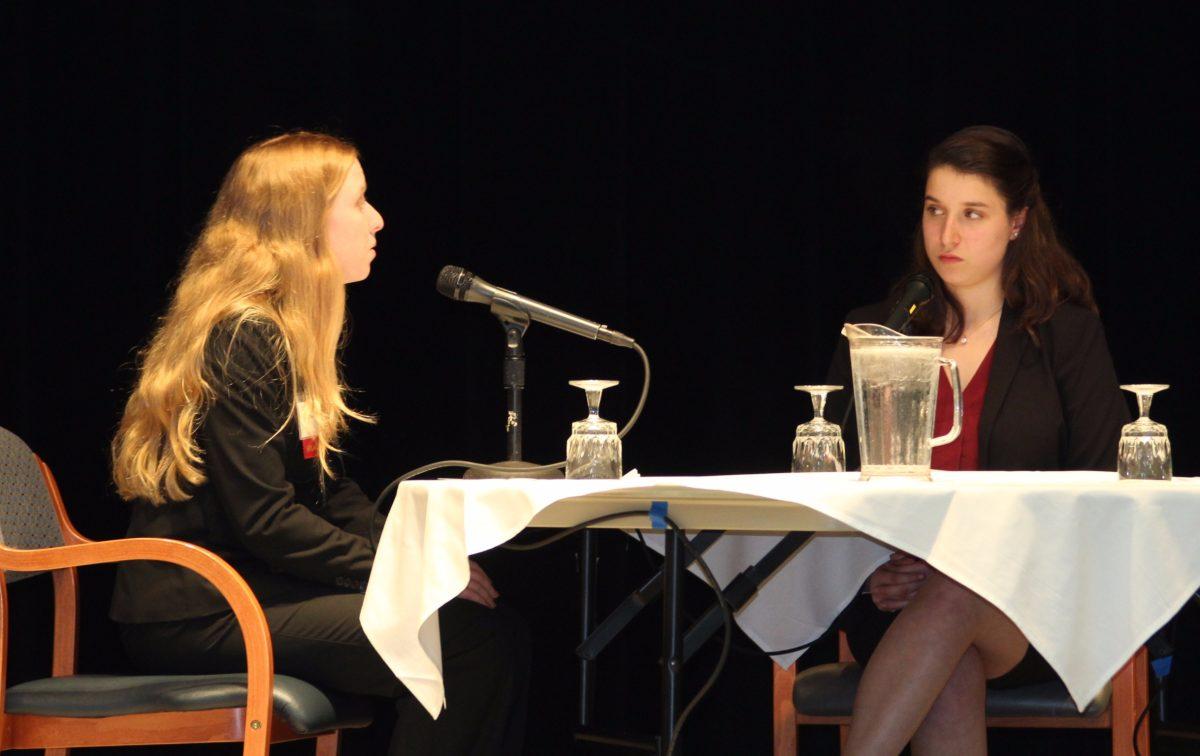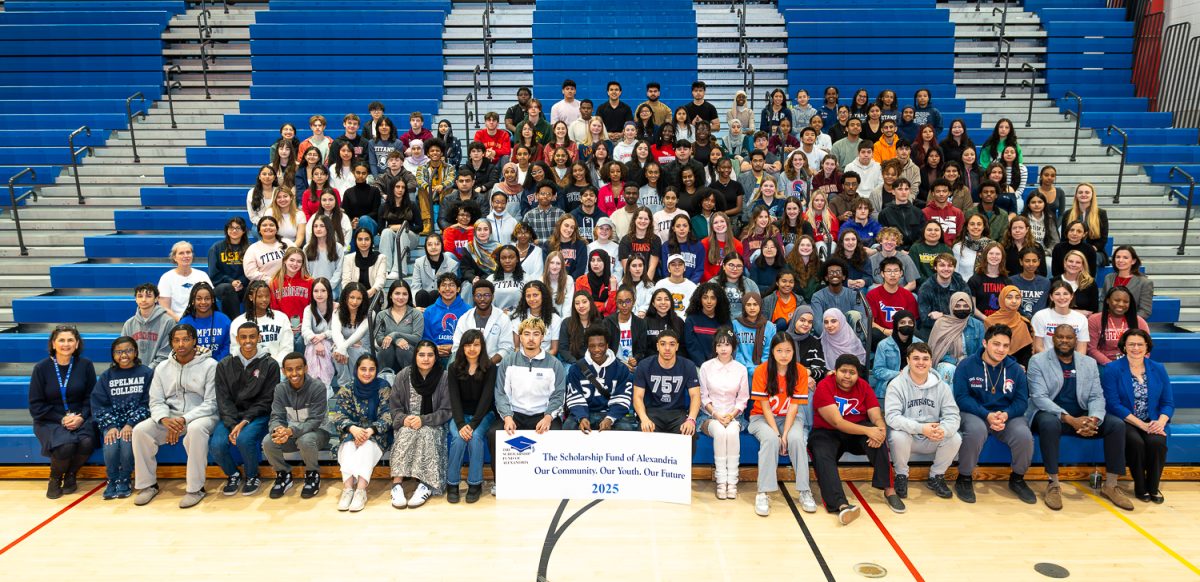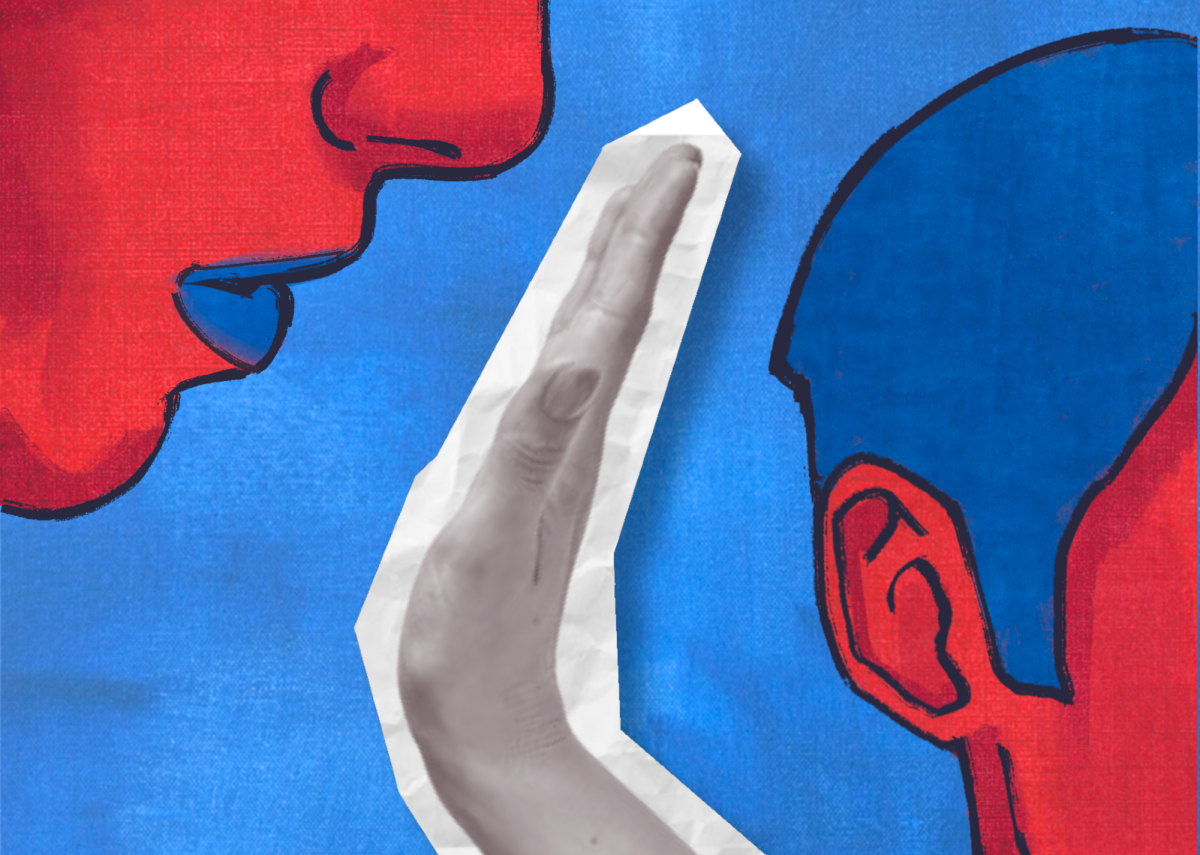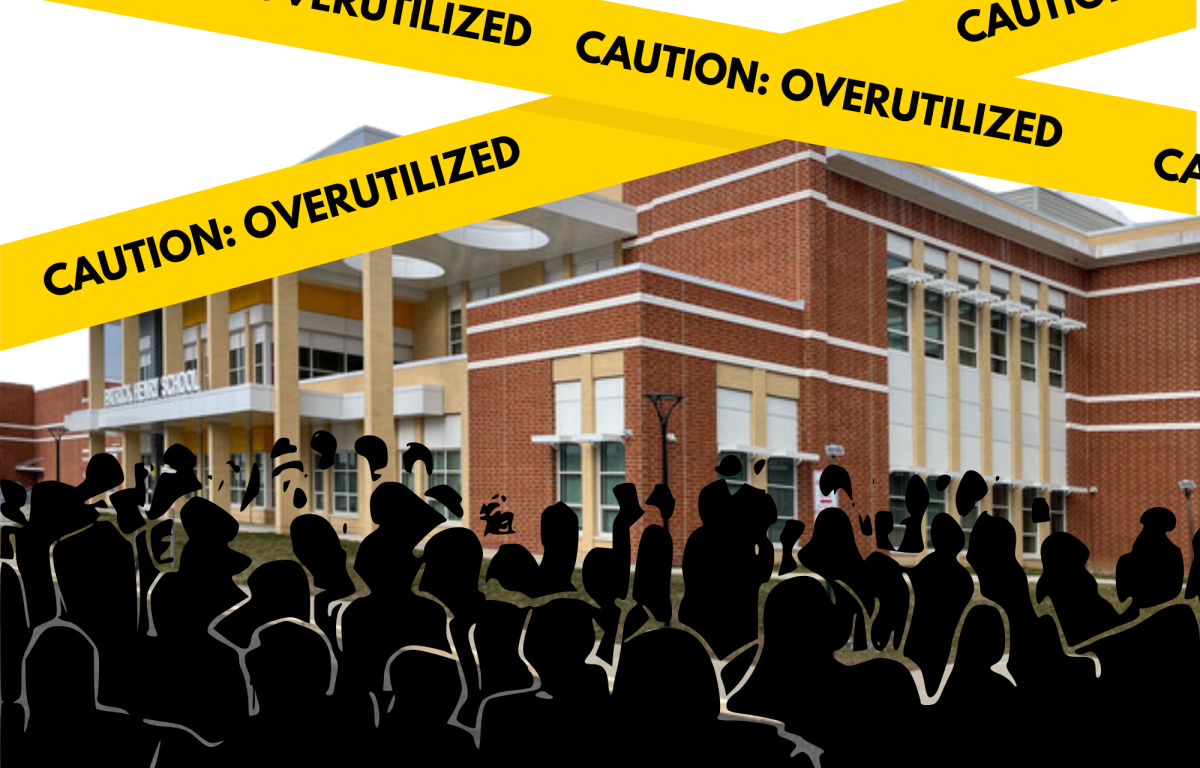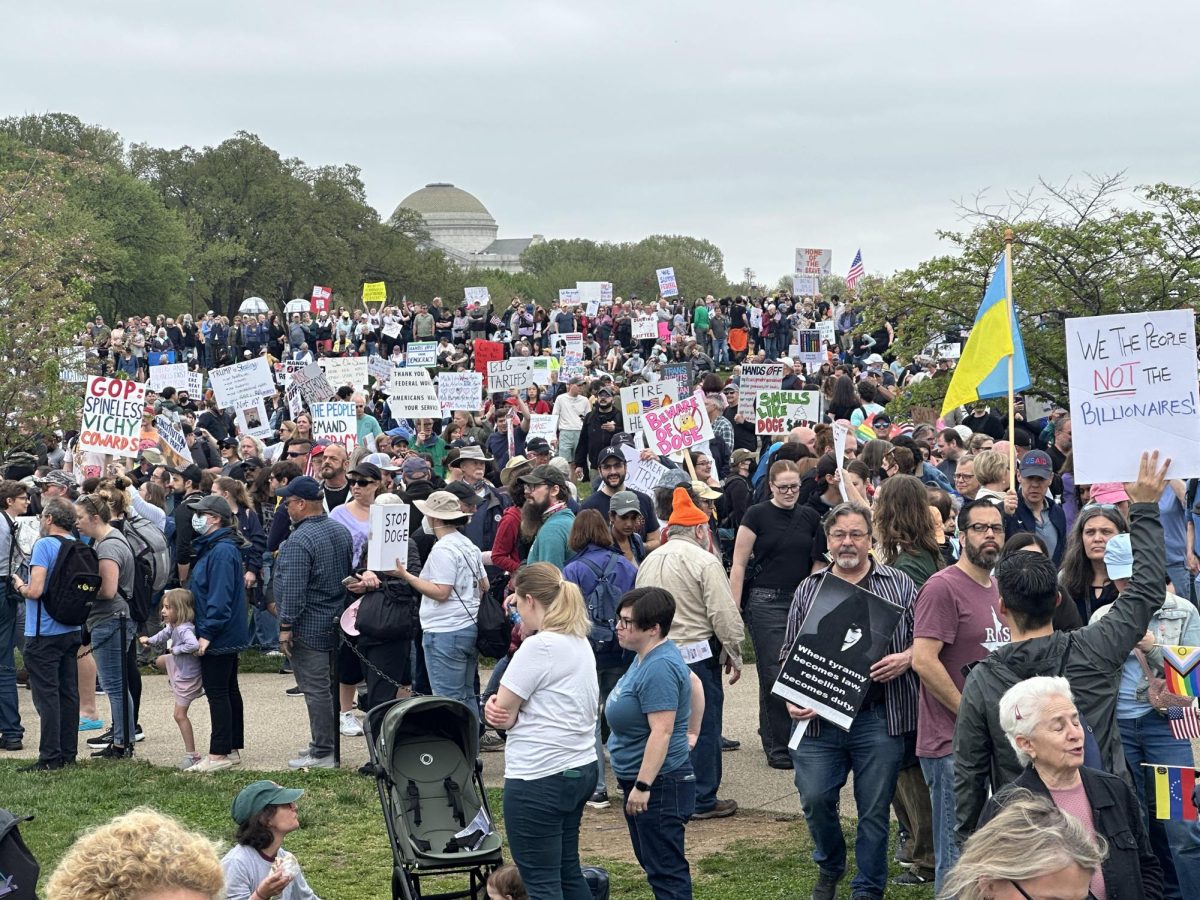By Caroline Fox
While people at T.C. are generally well-informed when it comes to the larger sports teams like football and basketball, not many know the inner workings of the debate team. Although debate is not a sport that falls within the athletic department, it is still a competitive group of students who are skilled and dedicated to their craft. Separate from TC’s debate elective class, which has previously been taught by drama coach Leslie Jones, the extracurricular debate team is advised by English teacher Laurel Taylor.
Seniors Jay Falk and Victoria Peace are co-captains of TC’s debate team and will be four-year members by the time of their graduation. In June, the co-captains held a debate at Agenda Alexandria, the city-wide community forum that meets eight to nine times a year to discuss political, economic and social issues in Alexandria without emphasizing political inclinations. The topic of discussion in June was gun control–what should be changed both nationally and locally. The two co-captains drew names to determine who would argue which side.
After they debated for almost an hour, it was clear that both parties had done extensive research and were informed on not only the topic of gun control, but also how to powerfully defend an idea in a professional manner. According to Peace, such experience is “essential in today’s society, where people often jump to conclusions, because you realize that things are not usually cut and dry issues.”
Students looking to expand their knowledge and critical thinking skills should consider joining the debate team. “The most interesting thing is to do research and realize you were wrong,” said Falk, when answering specific questions posed by the Agenda Alexandria attendees. “Empirical data can be incredibly hard to analyze.”
Theogony editor Caroline Fox asked Falk and Peace additional questions after their debate at Agenda Alexandria. A transcript of the interview is as follows:
How is the debate team different from the debate class at TC? Do students need to take debate to be prepared for the debate team?
Victoria: I took the debate class my freshmen year, and, in my opinion, it is very different from the debate team. For one, the class mostly focuses on topics like effectively using pathos, ethos, and logos to formulate an argument, while the team is devoted to debating about policy solutions to specific issues. Also, the debate team goes to several tournaments a year which follow a specific structure, while the class is centered around allowing students to experiment and try many different types of debates. While both the team and the class can help you become a better debater, it is not necessary to take the debate class at TC before joining the team, they are not affiliated with each other at all.
What are some of the critical skills you’ve developed or acquired from your time as debate captains?
Jay: I think the aphorism ‘practice makes perfect’ is a good description of what we have gained from debate and our tenure as captains. Research-based writing, critical thinking and analysis, leadership, logistical organizing, marketing, and fundraising is all hard. We have been fortunate to have the opportunity to practice these skills again and again in debate, each time improving. It is incredibly satisfying to know that we ran or organized each element of the team a little better each time we tried. The ability to look back on each mistake and learn from it is not just important for debate, but it is a skill that has already served us in classes and other extracurricular activities and will continue to help us throughout life.
Do you find it more or less difficult to debate controversial topics (like gun control)?
Victoria: I actually find it is less difficult to debate controversial topics like gun control, because when you know your audience has strong feelings about an issue, it is easier to use emotional appeals to get them to side with you. It is much harder to get an audience to care about a boring or irrelevant topic, than it is to get a passionate audience to broaden their perspective on an issue they care about.
How has Ms. Taylor led the program and helped you develop your skills?
Jay: Ms. Taylor’s passion for debate is contagious. Throughout our three years she has given us the opportunity to learn by doing. In running meetings and teaching new members, we have become better debaters and leaders.
What are some of the most difficult or complicated issues you have debated?
Victoria: I would say gun control is probably one of the most difficult issues I have had to debate during my time on the debate team. Most of the issues we address in the regular season are less controversial, for instance last season we debated diplomatic and economic engagement with China.
Do you believe there is a place for emotional appeal in debates between politicians and policy creators in general? How does this tactic prove its efficacy?
Jay: Many political debates are conflicts between public good (e.g. public safety against gun violence) and personal freedom (e.g. the right to own guns). I think emotional appeal is ultimately misplaced in public policy creation, which should be guided by empirical analysis/data and ideological clash between personal freedoms and public good. That being said, emotional appeals are persuasive so they are often used to convince politicians and the public about the importance and/or efficacy of a certain policy once created. This can be good or bad depending on how effective or good the policy is.
